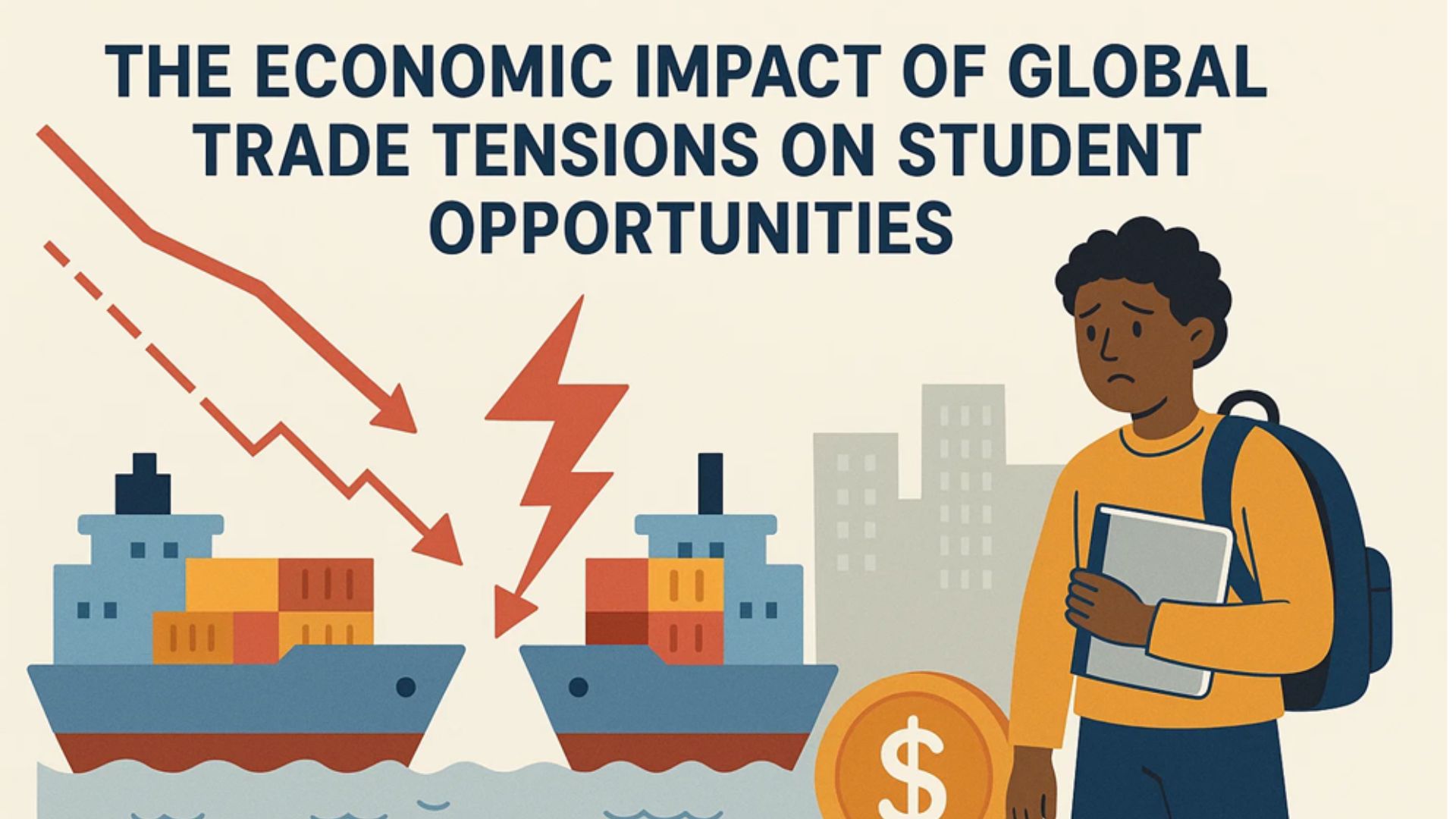How Do Trade Tensions Affect Students?
Global trade tensions shape the world economy in ways that touch student lives directly. They create both problems and chances. When countries argue over trade policies or tariffs, it influences education costs, study choices, and future careers. For students, understanding these impacts helps make smarter decisions about study plans and job paths.
Negative Economic Effects
1. Rising Education Costs
Trade disputes often slow economic growth and increase prices. When tariffs are added on imported goods like computers, books, and lab tools, the cost of studying rises. Families also face financial pressure if jobs are lost in affected industries. Currency changes make tuition fees unpredictable, especially for students studying abroad.
Example: A rise in tariffs can make computers and essential study tools more expensive, forcing students and schools to spend more.
2. Fewer Study Abroad Options
Tensions between countries often lead to stricter visa rules and delays. Governments use visas as part of trade or political arguments. As a result, students may find it harder to study abroad or join exchange programs. Universities sometimes suspend collaborations to avoid risk.
Example: When the U.S. and China had strong trade disagreements, thousands of Chinese students faced visa cancellations, stopping their academic plans overseas.
3. Uncertain Job Market After Graduation
Trade conflicts make companies cautious. Hiring slows down in industries like manufacturing, finance, and logistics. Many firms hold back from offering new jobs because of unstable markets. This affects graduates who need early career experience or internships.
Example: Auto companies affected by tariffs often pause new hiring, which limits opportunities for fresh graduates.
Positive Economic Effects
1. Growth of New Educational Hubs
Trade tensions can also create fresh educational opportunities. When studying in traditional countries like the U.S. or U.K. becomes costly or complicated, students explore new destinations. Nations such as Germany, Singapore, and the UAE have become attractive education centers. online exam helper and regional exchange initiatives are growing fast, making quality education more accessible.
Example: Students who cannot afford U.S. universities now choose countries like Germany, which offer affordable or free higher education.
2. Demand for Modern Skills
Companies now look for graduates with practical, global, and technical skills. Trade changes increase the need for professionals who understand logistics, data management, and risk control. Students who learn adaptable skills—such as digital literacy and problem-solving—find better job security in shifting markets.
Example: As countries build their own technology industries, they need more engineers, data analysts, and software developers.
3. Increased Domestic Investment in Education
Many governments respond to trade disruptions by investing in their own education systems. The goal is to prepare a skilled local workforce that can fill national job demands. This investment improves access to training, scholarships, and local job opportunities.
Example: When international trade declines, governments often strengthen local training programs to support growing home industries.
What Do Trade Tensions Really Mean?
Trade tensions happen when countries argue about how goods and services are exchanged. They may raise tariffs or limit imports to protect local industries. While this helps some businesses at home, it often slows down global trade and economic growth. For students, this means changes in tuition, travel policies, and job availability. To better understand the legal and policy aspects behind these trade issues, you can explore resources like law assignment help, which explain global trade laws in simpler terms.
Conclusion
Global trade tensions bring challenges—but also new directions—for students. Costs may rise, visas may tighten, and the job market may shift. Yet, new study hubs, emerging industries, and modern learning opportunities also appear. As a student, being flexible and informed helps you adapt to these changes.
By understanding how trade affects education and jobs, you can plan your studies wisely and prepare for a future shaped by a global economy in transition. For deeper insights or guidance on related topics, you can also explore an assignment writing service that provides expert support on global economic and educational trends.








